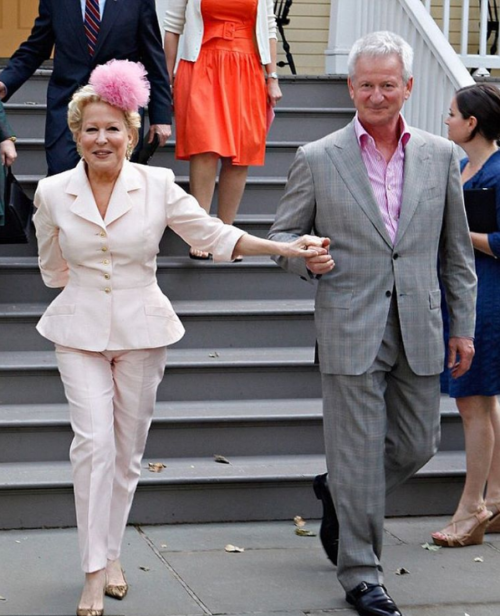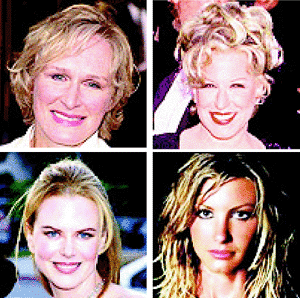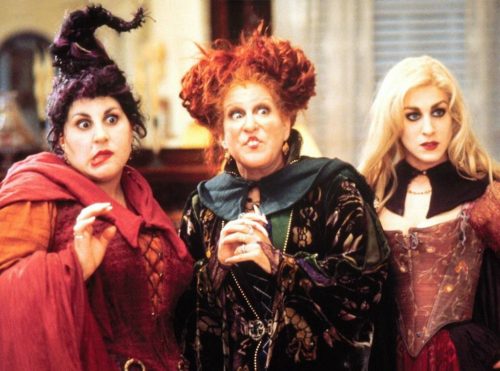
The New York Times
James Caan Rises From the Ashes of His Career
By BERNARD WEINRAUB
LOS ANGELES– James Caan glances around the dimly lit living room of the big rustic home in Bel Air that he has just sold. The actor built the house years ago at the peak of his career; it is a movie star’s home, richly paneled and filled with leather furniture and cluttered with Western-style paintings and reproductions of Remington statues. One of the actor’s former wives said something unprintable about the masculine nature of this place. “It’s the one funny thing she ever said,” Mr. Caan remarks with a laugh.
Giving up the house and its often vivid, painful memories and trying again to accommodate his new family is, for Mr. Caan, a metaphor for renewing himself. At 51, he is at an age when most movie actors find it virtually impossible to revive their careers. But Mr. Caan, whose personal and professional life crumbled in the 1980’s, who virtually disappeared from the screen, has suddenly returned to the Hollywood mainstream, held in the same regard as his actor friends Al Pacino and Dustin Hoffman and Robert Duvall.
Advance word on his co-starring performance opposite Bette Midler in the big-budget musical saga “For the Boys” has given an extraordinary boost to a moribund career that was jump-started last year by “Misery.” The film, directed by Mark Rydell, opens Friday, after lavish publicity and strong favorable reaction from preview audiences. Mr. Caan is enjoying it all: he has been mentioned as an Academy Award nominee, “friends” he hasn’t heard from in years are calling (“Typical,” he says with a laugh), and new scripts are arriving. “They’re from 20th Century Fox and Universal,” he says. “It used to be Podunk Productions.
“Thank God,” he adds quietly. “The No. 1 luxury of success is being able to choose the director you want to work with.” He pauses. “There was a pretty scary period there for me. A pretty dead period. I missed a decade.”
In “For the Boys,” Mr. Caan portrays a song-and-dance man named Eddie Sparks, a U.S.O. performer who teams up with a character named Dixie Leonard (Ms. Midler) in the early days of World War II. The film covers half a century. They entertain troops through the advent of television and the McCarthy era, through Korea and Vietnam. The two become show business legends. The Caan character, as written, is a faintly sleazy figure, compulsively unfaithful, forced to yield to the Communist witchhunt and betray a friend. As performed by Mr. Caan, however, Sparks is multidimensional, weak but compassionate.
“Somehow Jimmy’s acting never shows,” says Ms. Midler. “Believe me, his acting school is so much better than mine. Mine is a school of mugging. He has a more languid way of working. And everything he does is very small — he’s a master of the small gesture, the flickering eyelash; everything was exquisitely right.
“He has all these deep layers of macho stuff; he’s very boisterous, very outgoing, but then you work with him and get him in a corner, and you realize he’s very smart and very sensitive.”
Ms. Midler, whose company, All Girl Productions, produced the film, acknowledges that she was reluctant to cast Mr. Caan in the movie and did so only at the insistence of Mr. Rydell. “I had cast the role in my mind 100 times,” she says. “Mark insisted. I was skeptical. I remembered him from ‘Godfather’ and ‘Gardens of Stone‘ and ‘Misery.’ Real tough. Then I looked at ‘Funny Lady‘ and ‘Harry and Walter Go to New York.’ He was hilarious. Mark told me that Jimmy was the most underrated actor in America. I said O.K.”
Ms. Midler’s reluctance was prompted by Mr. Caan’s reputation as difficult and temperamental and his well-known bout with what he calls “craziness” in the late 1970’s and early 1980’s. The bitter breakup of two marriages, poor career moves, emotional depression, highly publicized bouts with cocaine, money problems and a family tragedy left him devastated.
Today, the actor is married to his third wife, Ingrid Caan, a Queens-born pastry chef with whom he has a 6-month-old son, Alexander. Another son, Scott, 15, lives with him; he also has a daughter, Tara, 17, who lives in Phoenix.
Back then, he acknowledges, his days were spent coaching Scott’s soccer and basketball teams, and too many nights were spent dating Playboy bunnies. Finally, he turned reclusive, until Francis Coppola, Rob Reiner and Mr. Rydell, directors who are old friends, stepped in to help salvage his career. “My real friends never quit on me,” Mr. Caan says.
Mr. Rydell has known Mr. Caan since the 1960’s, when both were actors in New York. “He’s one of the four or five best actors in America,” says Mr. Rydell. “There are very few actors who could have played this part — a megalomaniacal, entertaining, charming and complicated character. I needed someone to carry their weight against as giant a talent as Bette Midler.”
Mr. Rydell says it was crucial to solidify the personal relationship between Ms. Midler and Mr. Caan before filming began. So, over Ms. Midler’s strong objections, Mr. Rydell insisted that the two spend four months, eight hours a day, learning to tap dance. “She wanted to do it alone; she didn’t want to be embarrassed,” says Mr. Rydell. “I knew this would be a perfect crucible for their relationship. Everyone’s very awkward. They’re making mistakes in front of each other. She relies on him. He relies on her. I knew a relationship of trust would develop.”
Ms. Midler says with a laugh: “It was torture. Both of us were overweight. We both lost 20 pounds. I was ashamed of the way I looked. I was so self-conscious in leotards. I looked horrible. Yeah, it was a binding experience.”
If Mr. Caan had a reputation as a difficult actor, he is also blunt and engaging, a man who speaks about his troubled career and life without self-pity. “I don’t want to talk about the great art I once did — there wasn’t any,” he says. “It wasn’t that I did bad pictures. I just banished myself for a while.”
Few actors in the 1970’s emerged so quickly as a major star as Mr. Caan did after his portrayal of Sonny Corleone, the swaggering, violent, doomed son in Mr. Coppola’s “Godfather.” Before “The Godfather,” he had appeared on and Off Broadway and in television series ranging from “Wagon Train” and “Ben Casey” to “The Untouchables” and “Alfred Hitchcock Presents.”
After more than 20 years of living in California Mr. Caan still speaks in the accents of New York: he was born in the Bronx and raised in Queens, where his family owned a kosher meat market. To escape the family business — “the meat market was looming closer and closer” — he aimed for a pro football career but was too small to make the team when he went to Michigan State. To be closer to home, he transferred to Hofstra University in Hempstead, N.Y., but left to take acting lessons at the Neighborhood Playhouse in New York City, where he met Mr. Rydell. “I was a class clown,” he said. “The appeal that acting had for me was: there I was, center stage.”
The year 1972 was the high watermark of his career. He was nominated for an Academy Award for “The Godfather” and won an Emmy for his television performance as Brian Piccolo, the Chicago Bears’ running back doomed by cancer in “Brian’s Song.”
In the next decade, Mr. Caan was offered an array of major roles that he turned down, including parts in such films as “Kramer vs. Kramer” (“it was such middle-class, bourgeois baloney”), “Apocalypse Now,” “Superman,” “M*A*S*M*A*S*H” and “One Flew Over the Cuckoo’s Nest.”
If Mr. Caan’s rejections were unfortunate for his career, his choices were even more unfortunate. Although he appeared in some films of which he is proud — such as “Cinderella Liberty,” also directed by Mr. Rydell, as well as “Thief” and “The Gambler” — there were numerous flops. He walked off the set of one movie, “The Holcroft Covenant” and was replaced by Michael Caine. He says his one directorial effort, “Hide in Plain Sight,” was marred when “some jerk” at United Artists altered the movie.
“There are pictures I made that I still haven’t seen,” he says. “I was depressed when I was making them. In the middle of some of these pictures, I kept thinking, ‘What am I doing here?’ It’s like you’re in a hallway and you can’t get out.”
Beyond this, his personal life unraveled. The death of his sister, Barbara, at 38, after a prolonged battle with leukemia, left him feeling vulnerable and despondent. “She was like my best friend, my manager,” says Mr. Caan, recalling that she lived close by, ran his production company and “was the only person I was afraid of.”
“After Barbara died, I realized passion is such an important thing to have in life because it ends so soon, and my passion was to grow up with my son,” he says.
Those nights, in the 70’s and early 80’s, he partied, and his reputation for cocaine use was well known in Hollywood. He speaks about his cocaine use haltingly. “First you have peer pressure,” he says. “You have parties. I was single. There were girls. That was the way to get girls.
“I went through it, but not to the degree you’ve heard about. I wish I had done half the things people said I did.”
Facing money problems, even the possible loss of his house, Mr. Caan tried to return to work. In 1987 he was seen in Mr. Coppola’s “Gardens of Stone,” in which he plays a tough sergeant chafing under burial duty at Arlington National Cemetery during the Vietnam War. He was then in “Alien Nation,” which he shrugs off. Last year, he finally returned with a major hit, Rob Reiner’s “Misery.” The adaptation of the Stephen King work, about a bedridden novelist taken hostage by a crazed fan (Kathy Bates), was initially intended for Warren Beatty, who dropped out because he was working on “Dick Tracy.”
Mr. Caan is now playing a starring role in a new film, “Honeymoon in Vegas,” a comedy written and directed by Andrew Bergman. His immediate priority, he says with a laugh, is finding a house in which to start all over again with his new family. In response to the suggestion that his life and career seem to contradict F. Scott Fitzgerald’s observation that there are no second acts in American lives, he says:
“Yeah, it’s unusual to have a second act.
“Especially in this town.”

![Reblog this post [with Zemanta]](http://img.zemanta.com/reblog_e.png?x-id=44b284e0-1e6d-4a14-8ddd-c37a50b9a8e9)






I liked this article. Thanks for posting. But what happened after this movie? I never understood the relationship between these two. After both of them really trashed the other? Any thoughts?
I think after the failure of the movie there was a lot of disappointment and a lot of blame to throw around….